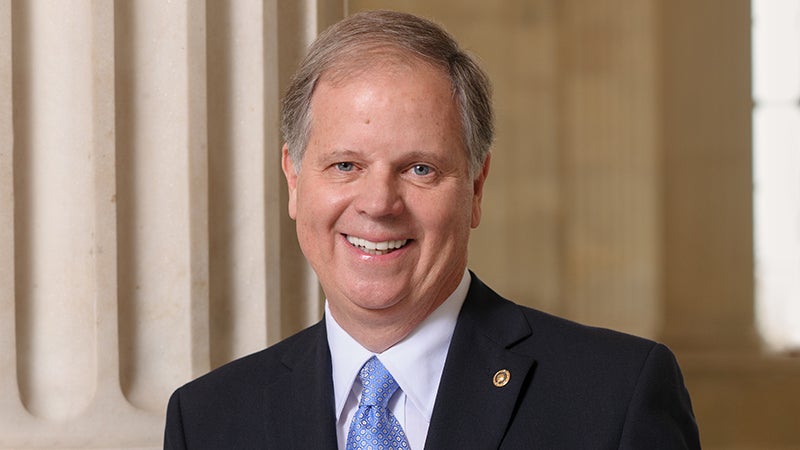Jones introduces bill to help children with rare diseases
Published 4:59 pm Tuesday, January 7, 2020
|
Getting your Trinity Audio player ready...
|
On Monday, U.S. Sen. Doug Jones, D-AL, introduced legislation with bipartisan support to help children across the nation with rare diseases receive a diagnosis and proper treatment more quickly.
According to a press release from Jones’ office, children suffering from rare diseases face a “diagnostic journey,” which typically lasts five to seven years and requires seeing an average of seven different doctors – 30 percent do not survive past the age of five.
Jones’ legislation, the Ending the Diagnostic Odyssey Act, would help provide relief for these children and their families by allowing states to conduct Whole Genome Sequencing (WGS) services for children on Medicaid with diseases thought to be genetic.
According to the press release, WGS represents “the most robust genetic test available and the only test that can detect nearly all types of genetic variants.”
The federal medical assistance percentage would be 75 percent under a three-year pilot program.
“Whole Genome Sequencing has been a groundbreaking development for Americans with undiagnosed conditions and rare diseases,” Jones said. “Expanding children’s access to these services will save lives and provide hope to families through improved diagnostic and treatment options. In Alabama, [the University of Alabama – Birmingham] and HudsonAlpha are leading the way to bring these life-saving services to families.”
Jones’ release notes that there are currently around 7,000 known rare diseases and approximately 80 percent of them are genetic – about half of all rare diseases affect children.
Jones’ bill boasts a bipartisan contingent of cosponsors and is backed by more than 100 patient advocacy groups, including the Genetic Alliance, the Parent Project Muscular Dystrophy, the Epilepsy Foundation, the Asthma and Allergy Foundation of America and others.
Since being elected in 2017, Jones has made healthcare a central plank in his work, introducing legislation to incentivize Medicaid expansion in holdout states, successfully pushing for changes to the Medicare wage index that hurt financially-strained hospitals in Alabama and elsewhere, introducing legislation to address the nursing shortage in rural areas and introducing a bill to tackle the maternal mortality crisis being faced by black women.






